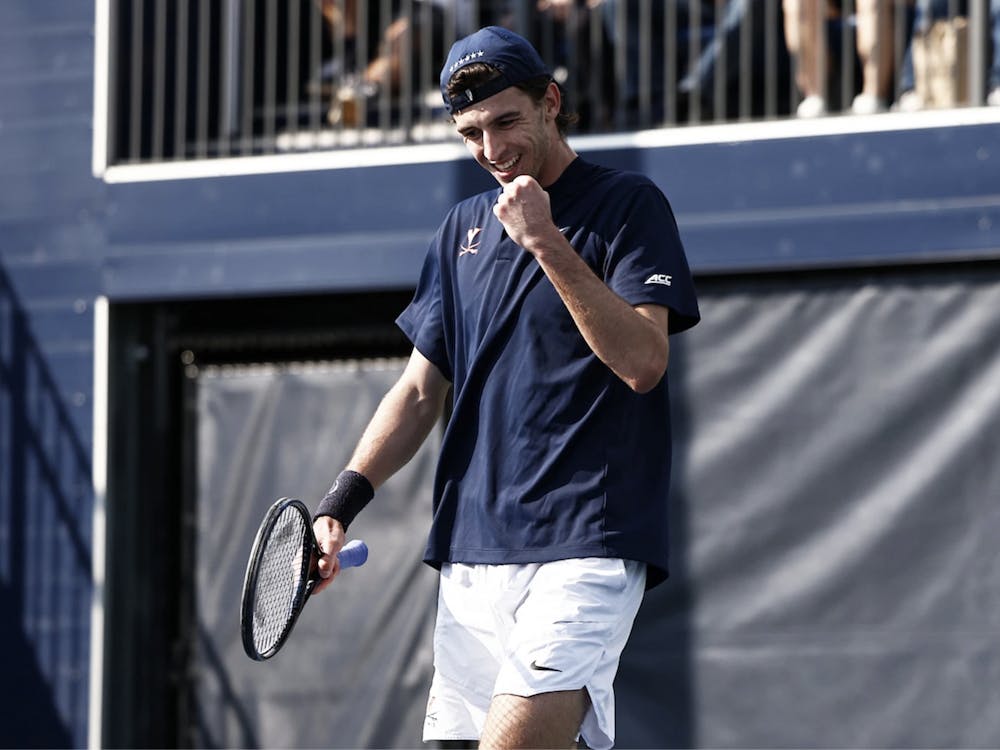"I still don't understand why you're doing this story," volleyball coach Melissa Aldrich Shelton told me as we sat down for an interview in her McCue Center office Wednesday morning. "There are much more fascinating things about the team than me."
With a shrug, Shelton, the most successful coach in Virginia volleyball history, agreed to let me go ahead with my questions. Fifteen minutes later, Shelton told her story as a coach who took a winding road to Virginia, struggling to balance the emotions of her inner-player in a very different environment from the one she knew as an athlete.
For Shelton, it all started in Long Beach, Calif. Volleyball in the 1980s just moved more slowly -- slower games, slower players and even slower recruiting.
"I was playing club volleyball when schools found me," Shelton said. "The club scene in California was probably one of the first areas to sprout up -- it was very developed at that time, and I played in many of the same tournaments that people recruit from now."
While prospects today exchange e-mails with coaches, Shelton's own recruiting process moved at a snail's pace.
"It used to take a letter from [William & Mary coach] Debbie Hill a week to get to me, and me a few days to respond and a week to get another letter back," Shelton said. "It's instantaneous now with the Internet."
Once she did commit to William & Mary, Shelton took off. While serving as captain during her junior and senior seasons, the Tribe dominated the Colonial Athletic Association.
"We won four conference titles while I was there," Shelton said. "We might have lost one, possibly two CAA matches while I played."
Hill had high praise for her former player's hard-nosed style in the heyday of Tribe volleyball.
"Melissa was the classic utility player," Hill said. "She might not have been the best athlete on the team, but she was the consummate team player and without a doubt the hardest worker in practice."
After graduating with a degree in history, the volleyball standout had a dilemma. Almost as a whim, Shelton dipped into coaching.
"When you graduate with a history degree, there aren't a whole lot of options," Shelton said. "When I was a grad student and an assistant at Arkansas State, they paid for my Masters degree, and I still didn't know what I wanted to end up doing. But I got my Masters paid for. You can't complain."
These days, it's safe to say she's settled into a career. Now in her 10th year at Virginia, Shelton became the school's most successful volleyball coach in 2000 and has since amassed over 180 victories.
Though wins alone might not show it, today's Cavaliers compete in a radically different environment from the one Shelton experienced as an undergraduate.
"The speed of the game has really picked up because players are starting younger," Shelton said.
Shelton also mentioned Title IX as having a big impact on the volleyball budget.
"We used to take vans [to away games]," she said. "When I was there we took our first charter bus, and that was a big, big deal. Meals, uniforms and opportunities have increased for females -- and rightfully so."
While at Virginia, Shelton also has faced the challenge of coaching against former teammates and Hill, something that has required adjustment.
Facing former teammates and coaches "makes the match very emotional -- almost too emotional -- for me," Shelton said. "That was the hardest thing for me in the transition between being a player and coach. You have to get rid of the emotion that you play with, because you can't think like that on your feet."
For her part, Hill said she is glad to see her former players be successful, although the occasional losses are always bittersweet.
"My former players are like my kids. I hate to lose, but if I have to, I can be proud of them and what they're doing," Hill said. "I'm exceedingly proud of Melissa and what she's done at U.Va."
This weekend, Shelton and the Cavaliers will try to continue their success on the road against Miami and Florida State.






